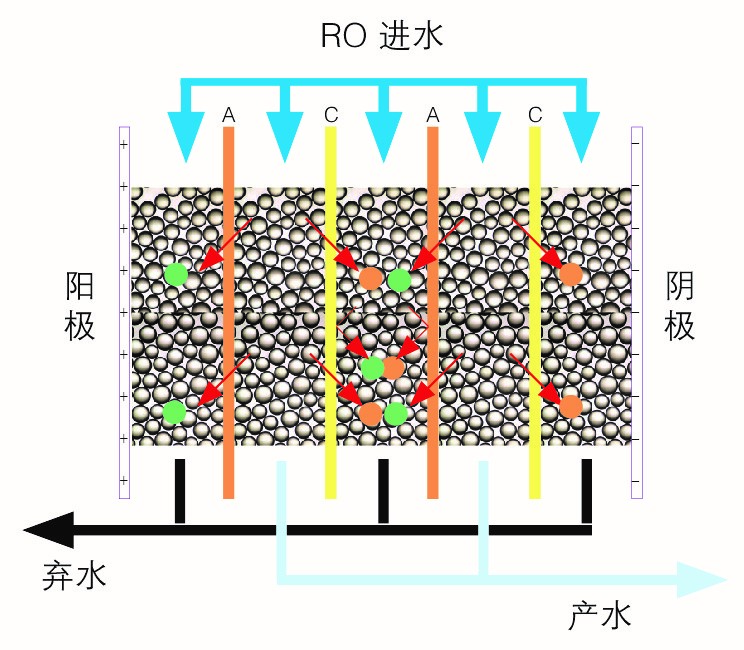Recently, one user encountered a problem at work - they found through the Shimadzu ICP-MS test that the lithium ion content in pure water is too high to reach the required ppt level. I have tried a lot of solutions and can't solve the problem of excessive lithium in pure water!
Used laboratory high-purity laboratory ultra-pure water equipment;
Changed the water used for injection in the factory as water;
Changed the RO film of different brands;
Replaced the ion exchange resin purification column;
Try Le Feng's ultra-pure water equipment;
......
Companies in the area where the customer's factory is located are engaged in the research and development and production of lithium batteries. It is very likely that the lithium ion content in the local tap water is too high, resulting in excessive lithium content in pure water.
The ICP-MS test confirmed this, and the tap water they used in the tap water was significantly higher than other regions.
Therefore, the ultra-pure water lithium ion content that the user encounters exceeds the standard, and the problem is in the water!
Lithium (Li) is the metal with the smallest atomic weight, and low-priced lithium ions (Li+) are the most active ions among the known metal ions. It is difficult to remove lithium ions in water by ion exchange resin, because lithium ions with too high activity are adsorbed by the exchange resin and easily dissociated into the produced water. If the lithium content in the raw water is relatively high, only reverse osmosis is used. The purification method of ion exchange does not easily achieve an ideal removal effect.
So how do you remove the lithium ions from the water?
After careful understanding and analysis, the user was presented with a solution to treat the influent water using a laboratory pure water system equipped with an EDI module (continuous current deionization) and then to prepare ultrapure water.
The user tried Le Feng's Direct-Pure EDI water machine. Sure enough, the problem is solved!
Why does a laboratory water purifier equipped with an EDI module have such a good removal effect on low-cost lithium ions?
EDI is a technical collection that includes a multi-stage ion removal mechanism. It is an upgraded electrodialysis process that combines ion exchange technology, filtration membrane, and electrochemical technology. Under the action of an electric field, an ion-selective semi-permeable membrane is used. Achieve the purpose of water purification separation. The diagram below illustrates the principles of EDI work.

The removal of ions from water by EDI is based on three processes - electrodialysis, ion exchange and electrochemical regeneration of the resin. Compared with general ion exchange, EDI can make active lithium ions migrate rapidly by electric field. By abandoning water, the balance between adsorption and dissociation between lithium ion and exchange resin is destroyed, so it is efficiently removed. User-satisfied purification effect.
The efficiency of EDI removal of lithium ions is strongly dependent on the concentration of lithium ions in the influent water. If the lithium ion content in the influent water is too high, some that are too late to migrate will still enter the pure water with the water. Lefeng's EDI water purifier combines two major water treatment technologies, EDI and RO, to reduce the Li ion content by RO and then process it through the EDI module to give a perfect removal result.
In addition to lithium ions, pure water equipment equipped with EDI modules can be effectively removed from other low-cost ions and small molecular weight charged organic materials.
In addition, EDI pure water equipment has many advantages -
Continuous supply of high quality pure water;
The water quality is stable and reliable;
Easy to use, easy to fully automatic control;
No need to use chemical regeneration, no chemical waste and resin waste discharge, green and environmental protection;
Long service life and low operating costs;
The occupied area is small.
Lefeng's new Genie E laboratory pure water system uses IonPure's EDI module, which can be equipped with multiple handles to take water, and wireless connection with the main control panel, which is convenient and durable, further improving the practicability of the product.
Reference article:
1. Shanghai Lefeng Genie E Laboratory Pure Water System
Http://
2. GE Technical Paper -Using EDI to Meet the Needs of Pure Water Production
Authors: Ted Prato and Christopher Gallagher, Ionics
3. Application of Electrodeionization in Ultrapure Water Production: Performance and Theory
Authors: Brian P. Hernon, R. Hilda Zanapalidou, Li, Zhang, Linda R. Siwak, and Erik J. Shoepke, Ionics
About Shanghai Lefeng Biotechnology Co., Ltd.
Shanghai Lefeng Bio is specialized in the research, development, design and manufacture of high-end water purification and laboratory separation and purification products, and is committed to providing cutting-edge, high value-added innovative products for life sciences and biotechnology. The Lefeng product line includes laboratory pure water systems, Millipore pure water compatible consumables and laboratory separation and purification filtration products. Established ten years ago, Lefeng created its own brand RephiLe (Ruifeng), with more than 30 patents and multiple software copyrights. Products are sold to nearly 90 countries and regions around the world. For more information on RephiLe products, please visit: Le Feng official website
Pay attention to RephiLe Enterprise WeChat: Le Feng pure water, pay attention to Le Feng dynamic!

Decorative Ice Cream Snack,Retail Crispy Or Wafers In Bulk,Egg Rolls For Decoration,Crushed Ice Cream Cone
Tianjin Yongkang Food Co., Ltd , https://www.yongkangfood.com